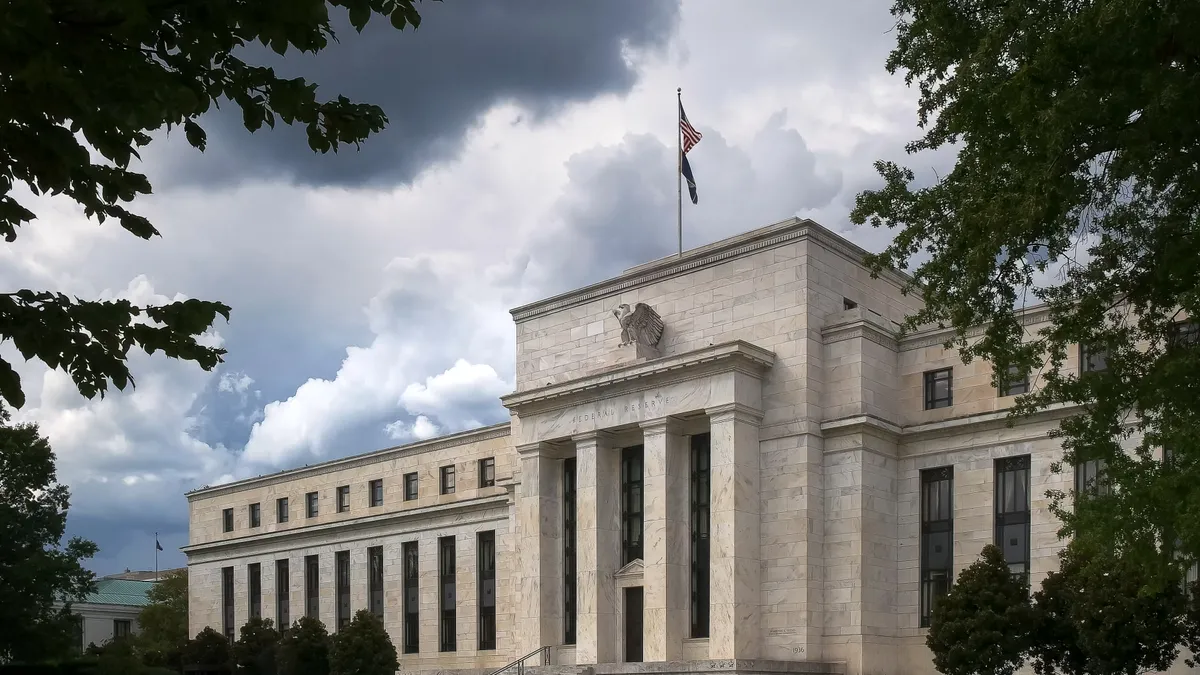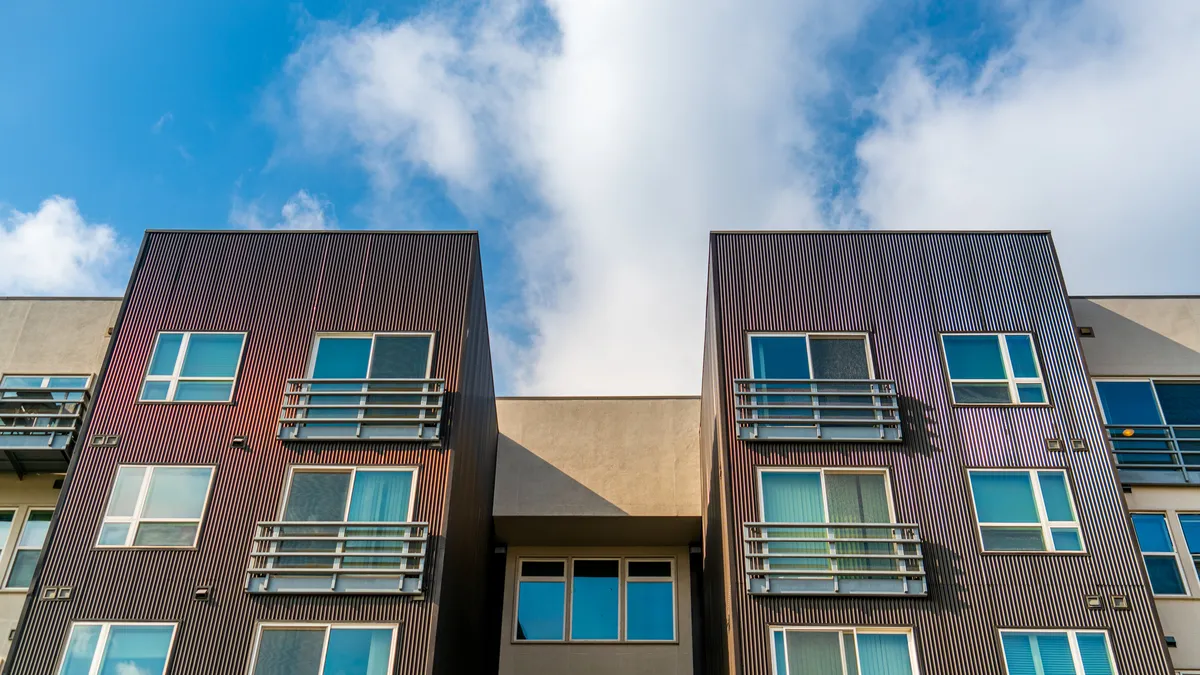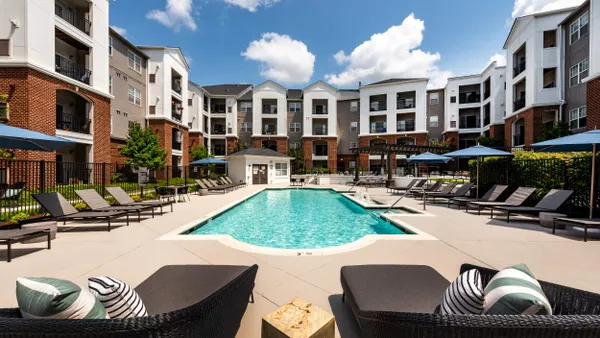On Wednesday, the Federal Reserve held the benchmark interest rate at a 22-year high ranging from 5.25% to 5.5% while affirming its pledge to quash inflation and signaling that a quarter-point hike is possible as early as its next meeting in November.
For apartment owners that have been reeling from a stagnant sales market and declining property values, the announcement brought little relief.
“Believe it or not, the 10-year Treasury went up 15 basis points after the announcement of the pause,” Jon Siegel, chief investment officer for Bethesda, Maryland–based apartment owner RailField Partners, told Multifamily Dive. “The market isn’t necessarily waiting for increases or decreases but for some level of stability.”
Fed Chair Jerome Powell made it clear that stability isn’t here yet.
“We’re prepared to raise rates further if appropriate, and we intend to hold policy at a restricted level until we’re confident that inflation is moving down sustainably toward our objective” of 2% [inflation], he said in a press conference, noting that price pressures have eased since June. “The worst thing we can do is fail to restore price stability.”
The central bank will likely increase the federal funds rate to 5.6% by December before trimming it to 5.1% by the end of next year, a half point higher than a 4.6% estimate in June, according to median projections by Fed officials released Wednesday. Policymakers have chosen to keep the main rate unchanged at two of six meetings this year.
Uncertain values
Without certainty on borrowing costs, apartment values remain in flux.
“At the end of the day, you need to be able to figure out what your cost is going to be, and the uncertainty is what is really driving most people to stay on the sidelines,” Siegel said.
Once that stability arrives, Siegel still expects a period of price discovery. “Obviously, once we have a good sense, we’ll need sellers to recognize where the market is in order to get a meaningful increase in transaction volume, but right now it’s tough to really know where things are going to land,” he said.
Though sales have fallen dramatically, some deals are still happening. In July, transaction volume plummeted 76% year over year to $6 billion, according to a report that data firm MSCI Real Assets shared with Multifamily Dive.
If the increases stop, Joe Lubeck, CEO of Tampa, Florida-based apartment owner and manager American Landmark, said that the sales market will pick up. If rates actually fall, things could change in a hurry. “A minor decrease would be a true jump start,” he said.
But that’s not happening until the Fed can get inflation to acceptable levels. The central bank’s preferred inflation gauge — the core personal consumption expenditures price index excluding volatile food and energy — slowed in July to 4.2% on an annual basis from a peak of 5.4% in February 2022.
“The process of getting inflation down to 2% has a long way to go,” Powell said, noting that Fed officials now forecast that the federal funds rate will remain higher for longer than they did in June.
CFO Dive Senior Reporter Jim Tyson contributed to this report.
Click here to sign up to receive multifamily and apartment news like this article in your inbox every weekday.











